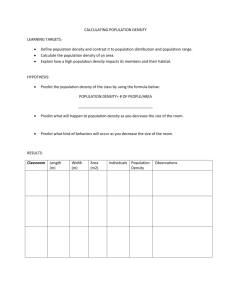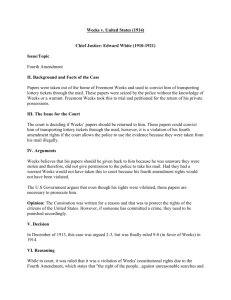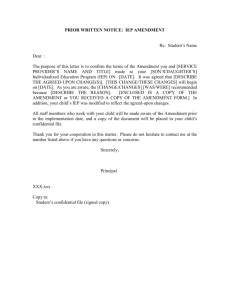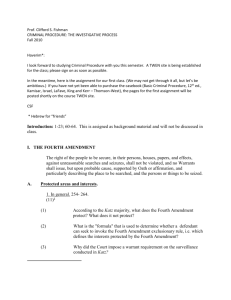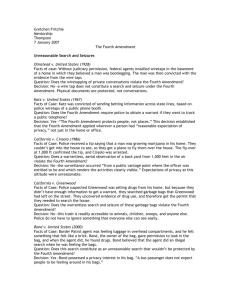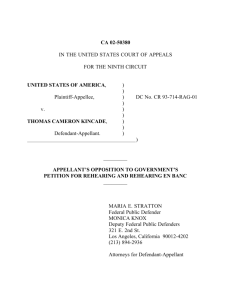AMERICAN M ARITIME SAFETY , IN C .
advertisement
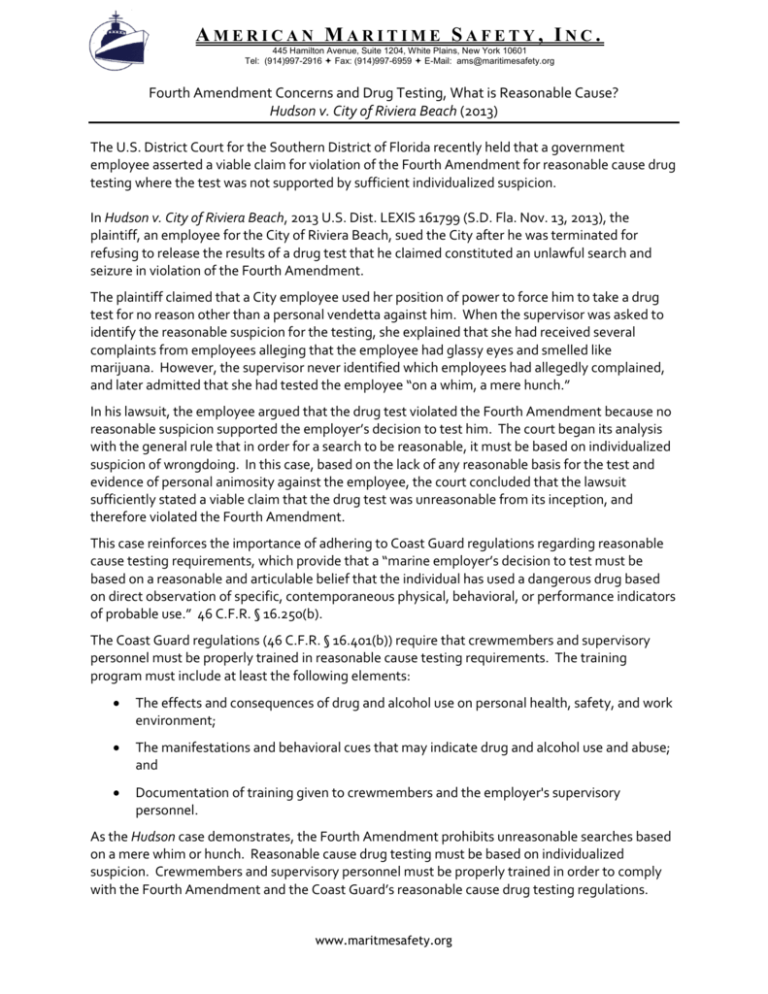
AMERICAN MARITIME SAFETY, INC. 445 Hamilton Avenue, Suite 1204, White Plains, New York 10601 Tel: (914)997-2916 Fax: (914)997-6959 E-Mail: ams@maritimesafety.org Fourth Amendment Concerns and Drug Testing, What is Reasonable Cause? Hudson v. City of Riviera Beach (2013) The U.S. District Court for the Southern District of Florida recently held that a government employee asserted a viable claim for violation of the Fourth Amendment for reasonable cause drug testing where the test was not supported by sufficient individualized suspicion. In Hudson v. City of Riviera Beach, 2013 U.S. Dist. LEXIS 161799 (S.D. Fla. Nov. 13, 2013), the plaintiff, an employee for the City of Riviera Beach, sued the City after he was terminated for refusing to release the results of a drug test that he claimed constituted an unlawful search and seizure in violation of the Fourth Amendment. The plaintiff claimed that a City employee used her position of power to force him to take a drug test for no reason other than a personal vendetta against him. When the supervisor was asked to identify the reasonable suspicion for the testing, she explained that she had received several complaints from employees alleging that the employee had glassy eyes and smelled like marijuana. However, the supervisor never identified which employees had allegedly complained, and later admitted that she had tested the employee “on a whim, a mere hunch.” In his lawsuit, the employee argued that the drug test violated the Fourth Amendment because no reasonable suspicion supported the employer’s decision to test him. The court began its analysis with the general rule that in order for a search to be reasonable, it must be based on individualized suspicion of wrongdoing. In this case, based on the lack of any reasonable basis for the test and evidence of personal animosity against the employee, the court concluded that the lawsuit sufficiently stated a viable claim that the drug test was unreasonable from its inception, and therefore violated the Fourth Amendment. This case reinforces the importance of adhering to Coast Guard regulations regarding reasonable cause testing requirements, which provide that a “marine employer’s decision to test must be based on a reasonable and articulable belief that the individual has used a dangerous drug based on direct observation of specific, contemporaneous physical, behavioral, or performance indicators of probable use.” 46 C.F.R. § 16.250(b). The Coast Guard regulations (46 C.F.R. § 16.401(b)) require that crewmembers and supervisory personnel must be properly trained in reasonable cause testing requirements. The training program must include at least the following elements: The effects and consequences of drug and alcohol use on personal health, safety, and work environment; The manifestations and behavioral cues that may indicate drug and alcohol use and abuse; and Documentation of training given to crewmembers and the employer's supervisory personnel. As the Hudson case demonstrates, the Fourth Amendment prohibits unreasonable searches based on a mere whim or hunch. Reasonable cause drug testing must be based on individualized suspicion. Crewmembers and supervisory personnel must be properly trained in order to comply with the Fourth Amendment and the Coast Guard’s reasonable cause drug testing regulations. www.maritmesafety.org
